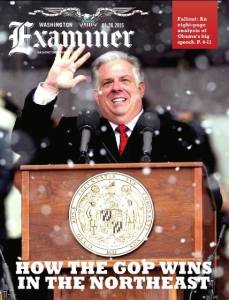Time magazine invited me to write an opinion piece on yesterday’s lethal Islamist attack on the offices of the French satirical magazine Charlie-Hebdo. (earlier here). Excerpt:
If you defend freedom of speech today, realize that “blasphemy” is its front line, in Paris and the world. …
Most of the prestige Western press dodged the running of the [Danish Mohammed] cartoons, and beneath the talk of sensitivity was often simple fear. As journalist Josh Barro noted today on Twitter, “Islamists have by and large succeeded in intimidating western media out of publishing images of Muhammad.” …
[On the modern European rise of laws against “defamation of religion” and related offenses]: One way we can honor Charb, Cabu, Wolinski, Tignous, and the others who were killed Wednesday is by lifting legal constraints on what their successors tomorrow can draw and write.
Also recommended, this thoughtful Ross Douthat column on blasphemy and religious offense. Douthat is not enthusiastic about blasphemy generally, but makes an exception for instances where it is done in defiance of grave dangers. “If a large enough group of someones is willing to kill you for saying something, then it’s something that almost certainly needs to be said … it’s precisely the violence that justifies the inflammatory content. … if publishing something might get you slaughtered and you publish it anyway, by definition you *are* striking a blow for freedom, and that’s precisely the context when you need your fellow citizens to set aside their squeamishness and rise to your defense.”
“So many of Charb’s fellow journalists have long been aware of these threats, and have said nothing,” writes Mark Hemingway in the Weekly Standard. Jytte Klausen, author of a book on the Danish cartoon episode, in Time: “Over the past five years, [the editors of Charlie-Hebdo] have been left alone standing in defense of press freedom.” And Alex Massie at The Spectator:
[The 1989 fatwa against Salman Rushdie] was a test too many people failed back then. We have learned a lot since then but in many ways we have also learned nothing at all.
In 2012, Rushdie wondered if any publisher would have the courage to endorse The Satanic Verses if it were written then. To ask the question was to sense the depressing answer. They would not.
As for the present day, CNN, NYT, AP, NBC, ABC, the BBC, Guardian, Telegraph, and the CBC, will *not* be running Charlie-Hebdo cartoons, though a number of American publications did so, including Daily Beast, Vox, and Bloomberg. No UK paper on Thursday morning runs the cartoons on its cover — though the Berliner-Zeitung in Germany publishes a full spread of them.
23 cartoonists respond [BuzzFeed]. Claire Berlinski’s firsthand account of the attack scene, and Charb’s now-famous “die standing” vow. Andrew Stuttaford at Secular Right on whether anything will now change in Europe’s slow constriction of free speech: he fears not (& Hans Bader, CEI).
Filed under: art and artists, Danish cartoons, France, free speech, hate speech, newspapers, publishers, terrorism, WO writings

